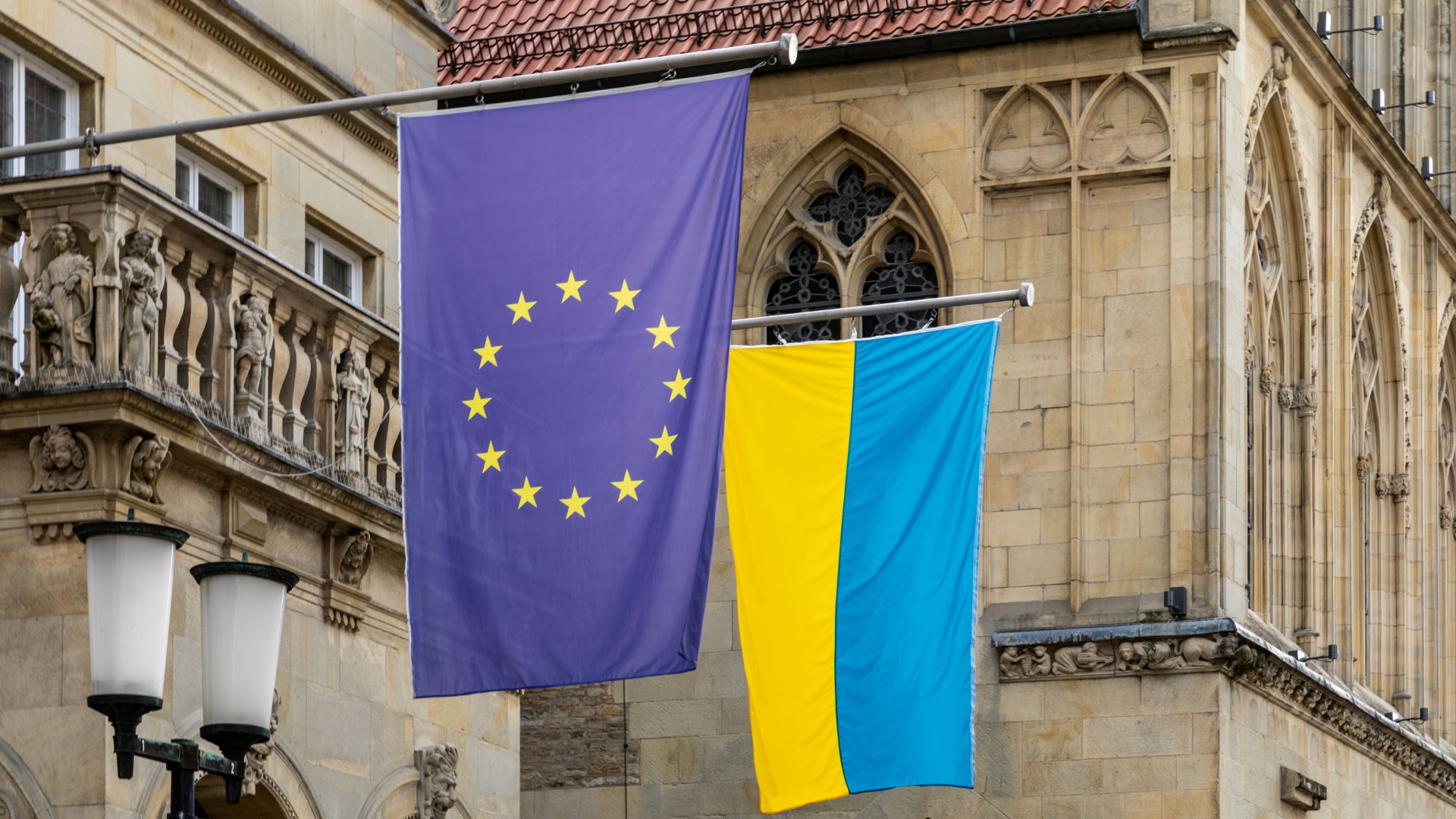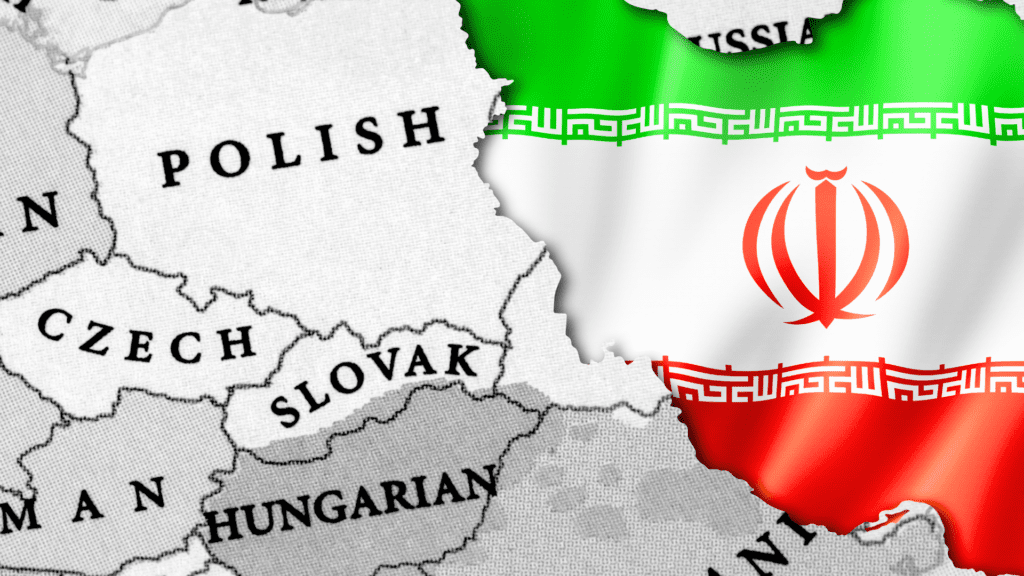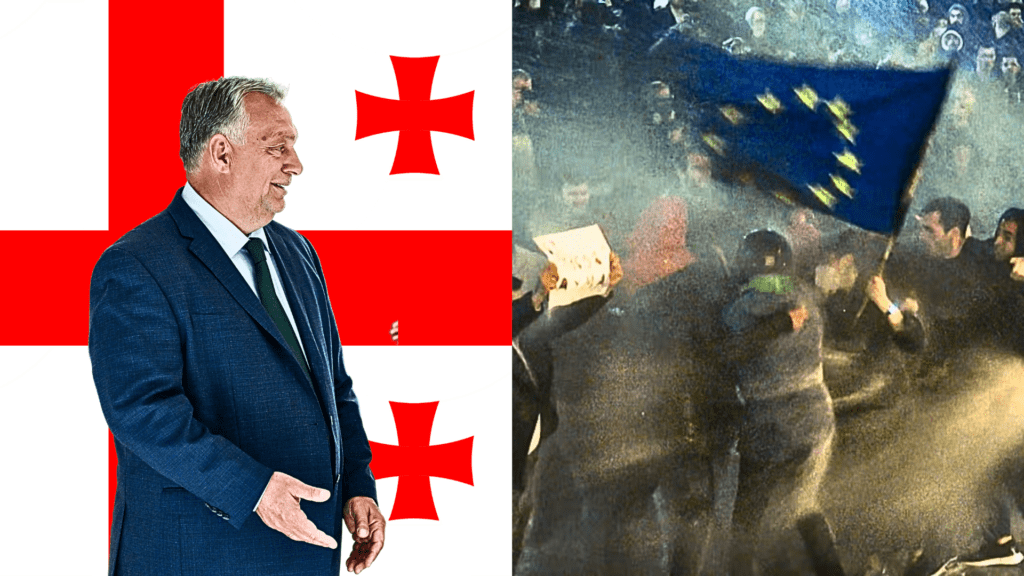Ukraine Should Be the Centre of the European Fight Against Russian Disinfo
Source: Visegrad Insight
The case of Ukrainian Artyom Marchevskiy – infamous pro-Kremlin Voice of Europe propagandist – travelling to Slovakia to escape Czech sanctions illustrates once again the subversive operations targeting EU public discourse. To tackle such operations, the EU, Central Europe and Ukraine have no option but to integrate their strategic communication.
The case of Artyom (Artem) Marchevskiy, a pro-Kremlin Voice of Europe propagandist from Ukraine, serves as a prime example of the shared challenges faced by the EU, Central Europe and Ukraine regarding malign propaganda strategies and subversive operations aimed at manipulating public discourse.
Furthermore, it underscores the transnational nature of propaganda warfare in the digital age, transcending national borders, and emphasises the inadequacy of individual nation-states’ responses. It also showcases how effective defence against hostile propaganda and disinformation involves ever-closer cooperation between those wanting to support the Union and EU values.

Artyom Marchevskiy in Slovakia?
The Czech liberal daily DenikN reported on 30 April that Marchevskiy travelled to Slovakia on the day he was added to Czechia’s national sanctions list at the end of March.
Czech authorities claim Marchevskiy has been instrumental in propagating the Kremlin’s neo-imperial ambitions and nationalist narratives in Czechia and other EU member states through the then Prague-based Voice of Europe’s media channels and even bribed some – mostly far-right and anti-EU – politicians. The Voice of Europe is supposed to be controlled by Vladimir Putin’s ally, Ukrainian-Russian oligarch Oleg Medvedchuk, and has reportedly resumed operations from Kazakhstan.
While Czech media raised questions about the Slovak cabinet of populist strongman Robert Fico possibly harbouring Marchevskiy, Slovak Minister of Interior Matúš Šutaj Eštók has denied having any knowledge of Marchevskiy’s presence in Slovakia. “It is new information for me, and I don’t have any further details on it,” he was quoted by DenikN.
In his comments to the Financial Times, Marchevskiy did not confirm nor deny whether he is currently in Slovakia, but he said that he is “impressed by the current leadership of Slovakia” and described the country as “an island of sanity in Europe”.
Fico’s cabinet has undoubtedly reoriented Slovak foreign policy from one of the staunchest supporters of Ukraine to one that frequently takes a Kremlin-pleasing stance and delights in ambiguities. What Fico likes to present as a multi-vector foreign policy stance has received frequent coverage in the international press, as such ambiguities, in effect, “normalise” contact with the Kremlin in the eyes of the Slovak public.
For instance, in March, Slovakia’s Minister of Foreign Affairs Juraj Blanár met with his Russian counterpart a day after Slovakia’s Minister of Defence Robert Kaliňák met with US Defence Secretary Loyd Austin. This is one of the most glaring examples of what Fico calls a “balanced and sovereign Slovak foreign policy”.
A similar duality is playing out with the Marchevskiy case. Not only is his sheltering in Slovakia an abuse of measures designed to protect Ukrainians fleeing Russian aggression, but Fico’s government could pretend to play the humanitarian card by allowing him safe harbour. This will depend on the administration in Bratislava’s decision to play along with Marchevskiy’s lines that the Voice of Europe just does not (fit) into the framework of the Czech government and the “ruling globalist elites”.
Marchevskiy also highlighted that Voice of Europe was run by a Polish citizen. Polish authorities are investigating Jacek Jakubczyk, the owner of the Voice of Europe website since March 2023
A cursory look at the profiles of politicians promoted by Voice of Europe includes Slovenian opposition leader and ex-Prime Minister Janez Janša, French Patricia Chagnon, Herve Juvin and Thierry Mariani, Italians Francesca Donato and Matteo Gazzini, Slovaks Ján Čarnogurský and Miroslav Radačovský, and the list goes on showing that the platform’s focus cuts across the EU member states.
Kremlin-allied network inside Europe
Marchevskiy, who also holds Israeli citizenship, left Ukraine in 2022 and, as a Ukrainian citizen, sought protection in Czechia after the Russian invasion. Euromaidan Press described Marchevskiy as a “long-time associate of Medvedchuk” and former general producer of the Medvedchuk-owned media 112, which the Ukrainian authorities sanctioned in 2021 following accusations of being a Russian propaganda channel.
Reports of Marchevskiy travelling to Slovakia directly followed the Czech police announcement from last week that it was forced to shelve the investigation into the 2014 explosions at the Vrbětice ammunition depots after Russia refused to cooperate with Czech authorities on the case.
“It is clearly and without any doubt proven by a police investigation that explosions at both depots in Vrbětice were carried out by members of the Russian military intelligence GRU,” Minister of Interior Vít Rakušan stated. Moreover, the notorious GRU agents Anatoliy Chepiga and Alexander Mishkin are reported to have taken part in the attacks on Vrbětice.
The Riga-based media outlet Insider’s investigation into the Vrbětice case also shows how Chepiga and Mishkin relied on a network of local companies, collaborators and GRU’s own illegal operatives who had been naturalised as Czech citizens with the help of corrupt Czech officials in the 1990s and 2000s.
One of the GRU illegal operatives working across the EU, Elena Shaposhnikova, was supposed to have obtained her Czech citizenship at her seventh attempt in 2004 “following the involvement of Stanislav Gross, Prague’s notoriously corrupt interior minister at the time,” the Insider wrote. Shaposhnikova and her husband have been the focus of a years-long investigation which accuses them of collecting information on military supplies for Russian intelligence, including the above Vrbětice explosion and the poisoning of Emilian Gebrev, a Bulgarian arms factory owner.
Shaposhnikova was last reported as living in Greece, and local authorities are reviewing Czech requests to extradite her to Czechia.
Where the stories of Marchevskiy and Shaposnikova cross is their efforts to undermine the EU in the interests of their patrons. Whether these patrons are Kremlin-allied oligarchs such as Medvedchuk or the GRU and the Kremlin itself, they equally treat the EU as an entity to be weakened or outright torn apart.
Marchevskiy and Shaposhnikova’s ability to move across the EU and use individual member states to shelter from national authorities highlights how they are well-adjusted to take advantage of and exploit weaknesses of the EU project. While they enjoy the free movement within the EU, they can also exploit the remaining bureaucratic barriers between the EU’s nation-states.
If the EU is to take a response, it will be one of further integration since, without it, the alternative is the grim prospect of being continually undermined. The combination of classic and hybrid warfare launched against the EU by the Kremlin and its far-right and ultraconservative allies across the bloc and the world narrows down the choices for the EU into the Hamlet-like dilemma of “to be or not to be”.
Divided we fall, united we stand…
The EU is commemorating the devastation of the European continent, which led to the inception of the European community built around common economic and political interests, and just as the EU set out to incorporate the post-communist nations of Central Europe into the Union in 2004, it now faces the challenge of standing by these choices.
Simply standing by the choices made after World War II and after the collapse of communism is seen by the current Kremlin administration as akin to war.
A war which is as open, bloody and criminal as it is covert, relying on spies and saboteurs and a seemingly endless stream of digital propaganda. A war in which Ukraine has been bruised, battered and withstanding for ten years.
It is a war that will not leave the EU alone, not least because the EU is too attractive a trophy for all the freedoms, achievements and power it has accumulated in the post-WWII era. Like Ukraine, the EU is fighting for its survival in this war.
Despite all the challenges this fight poses, one positive certainty is that the EU and Ukraine are stronger in responding to the adversary, which is employing divisive tactics against both.
_
The featured image is from Dietmar Rabich, Münster, Stadtweinhaus, Beflaggung Ukraine und EU — 2022 — 0219, CC BY-SA 4.0
Your Central European Intelligence
Democratic security comes at a price. What is yours?
Subscribe now for full access to expert analysis and policy debate on Central Europe.
The original article: belongs to Visegrad Insight .




